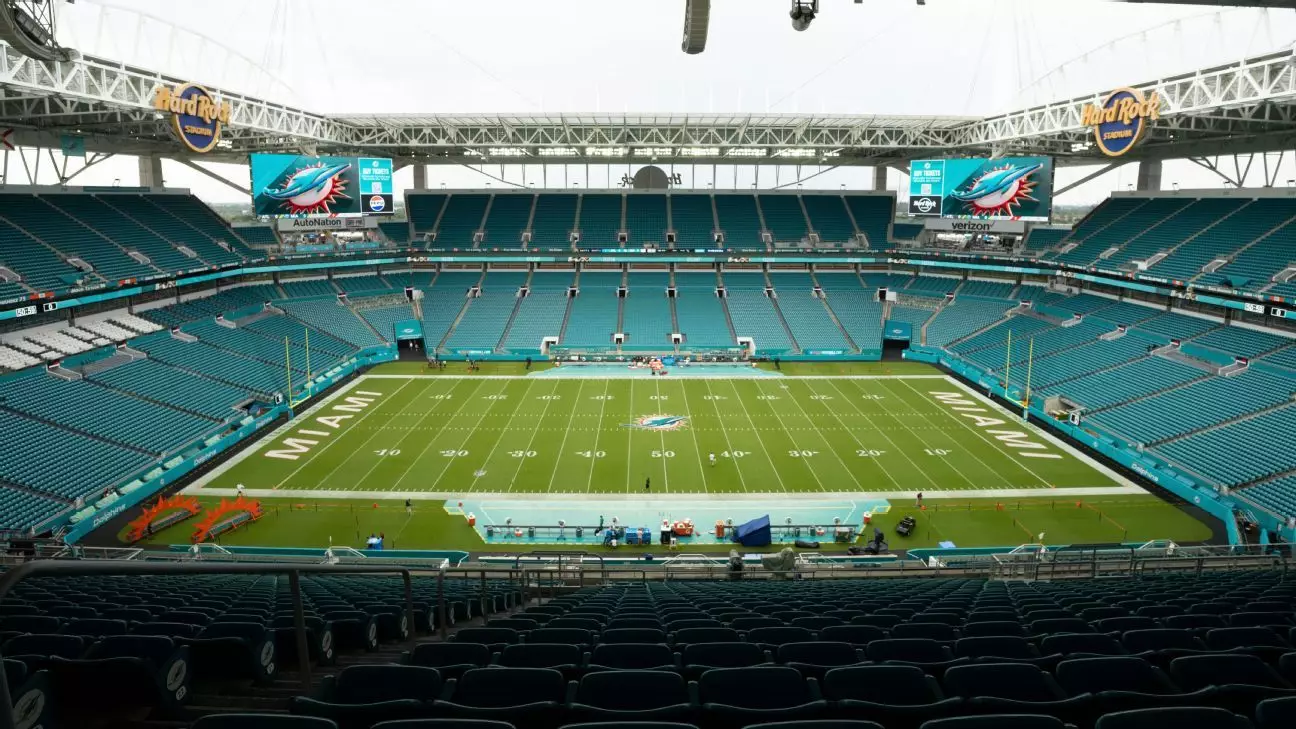The dream of bringing a LaLiga match to the vibrant city of Miami has hit another snag. Originally considered a possibility, the scheduling of the highly anticipated fixture featuring Barcelona and Atlético Madrid has been paused due to logistical complications. This development reflects broader challenges faced by international sporting leagues in expanding their footprint beyond traditional boundaries. As fans eagerly anticipate their clubs’ performances, administrative hurdles stand in the way of this transatlantic matchup.
Reports indicate that the game, slated for the weekend of December 21, is no longer feasible due to tight deadlines. Although there was optimism just a month ago about moving this significant encounter to Hard Rock Stadium, various stakeholders have since determined that the timeline is simply too tight. The intricacies of rescheduling a regular-season match across continents demand a coordinated approach among multiple governing bodies, including LaLiga, the Royal Spanish Football Federation (RFEF), and U.S. Soccer, among others.
The requirement for approvals from multiple organizations complicates the process. In particular, the absence of a permanent president at the RFEF until new elections can be held raises questions about the interim management’s authority to make decisions. This instability has resulted in a conundrum that places the approval of the Miami match in considerable jeopardy.
The governance structures that guide football on both sides of the Atlantic further contribute to the uncertainty surrounding the potential Miami fixture. Issues surrounding oversight bodies—which include FIFA and UEFA—also muddy the waters. The fallout from an earlier suspension of the RFEF’s interim president exacerbates the complications, as it casts doubt on whether necessary decisions can be made promptly. Clarity around leadership roles is paramount for international sporting initiatives, and the current power vacuum presents a significant obstacle.
Historically, LaLiga has struggled with its ambitions to stage games outside of Spain. Previous attempts to bring matches to the U.S. have been thwarted by opposition from governing bodies and logistical challenges. The quest for international expansion is arduous, even when a path seems momentarily clear.
Despite these setbacks, LaLiga continues to express its commitment to eventually staging matches in the United States. Earlier this year, a significant legal victory for Relevent Sports against FIFA’s regulations regarding international league matches has reignited hopes. The talks of moving games like Barcelona against Girona or Atlético Madrid against Villarreal previously fell through amid substantial opposition. Now, optimism lingers that remaining legal pathways might one day yield a favorable outcome for LaLiga enthusiasts in North America.
LaLiga’s president, Javier Tebas, has been a consistent voice advocating for international expansion. Statements from the league reflect a steadfast resolve to bring the values and excitement of Spanish football to global audiences, even if it requires navigating numerous complexities and delays along the way.
Although the plans for a December match in Miami are currently on hold, they illuminate deeper issues concerning international collaboration, governance, and the ever-changing dynamics of sports. This situation serves as a reminder that while ambition can pave the way for exciting opportunities, the realities of organizational structures may complicate even the simplest of aspirations. Fans, players, and stakeholders alike hope that in time, the dream of witnessing LaLiga’s essence in Miami can still become a reality.


Leave a Reply